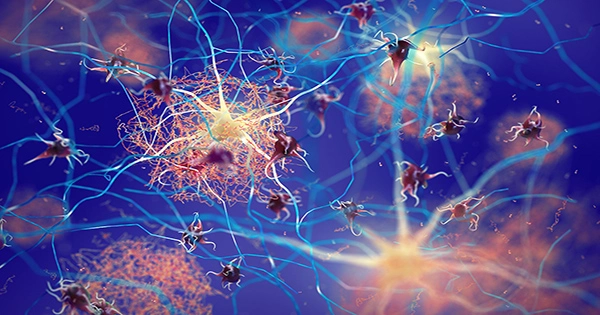In order to successfully reduce both cytotoxic amyloid aggregation and amyloid cross-accelerating interactions, German researchers have developed peptides that bind to amyloidogenic proteins associated with Alzheimer’s disease and type 2 diabetes.
Technical University of Munich (TUM) researchers have created “mini-proteins” (peptides) that can bind the amyloid-forming proteins and stop them from aggregating into deadly amyloids in pre-clinical trials.
In Alzheimer’s disease, toxic protein clumps and deposits known as amyloid plaques are connected to the death of brain cells. Similar pathways are crucial in type 2 diabetes as well.
The development of toxic protein aggregates that result in cell death is a known cause of a number of cell and neurological disorders. Type 2 diabetes mellitus and Alzheimer’s disease, which have more than 50 million and 400 million individuals globally, respectively, are prominent examples of these disorders. New therapeutic strategies are thus desperately needed.
A promising strategy is to stop the production of toxic amyloid aggregates. In experimental models, the team has created brand-new synthetic peptides that can prevent the hazardous amyloid aggregation that is connected to both disorders.
According to earlier research, certain interactions between the amyloidogenic proteins of the two disorders speed up amyloid formation. These results may help to explain why individuals with one of the two diseases may also be at a higher risk for the other disease.
In order to effectively prevent amyloid accumulation in both disorders, the scientists created synthetic peptides.
The proposed peptides are indeed capable of binding the amyloidogenic proteins connected to both diseases and efficiently suppressing both cytotoxic amyloid aggregation and amyloid cross-accelerating interactions, according to Professor Aphrodite Kapurniotu of TUM’s Department of Biochemistry. Surprisingly, although having a very similar appearance to hazardous amyloid aggregates, the mixed aggregates created by interactions between the chosen peptides and the amyloidogenic proteins have no deleterious consequences.
Additionally, these mixed aggregates that resemble amyloid are more effectively ingested by phagocytic immune cells than amyloid aggregates.
According to the researchers, tailored peptides may make promising candidates for the creation of medications to treat both type 2 diabetes and Alzheimer’s disease as there is mounting evidence linking the two disorders.















